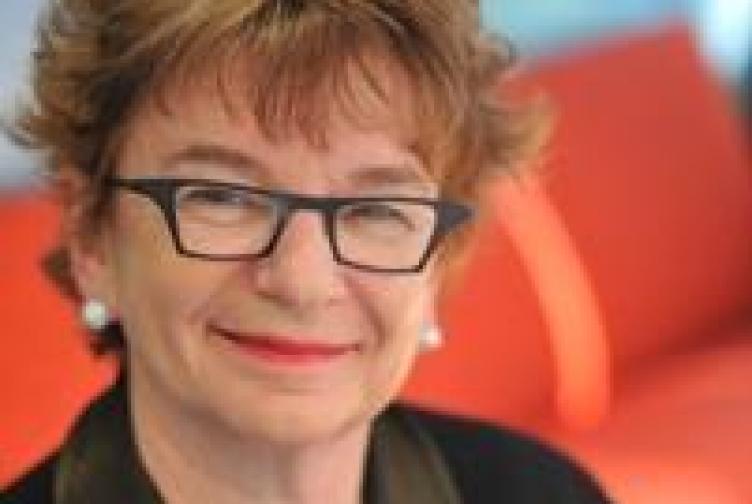
Kerryn Boland PSM, Community Member NMC
Kerryn Boland joined the Council in 2018 as one of three community members. In this interview she shares the unique perspective community members bring to the Council and what she has learnt about the nursing and midwifery professions.
You joined the Nursing and Midwifery Council of NSW as a community member. What inspired you to join?
Regulating in the public interest and making a difference to those things that are important to the community has always been at the centre of my professional life. So a role with the NMC was a perfect fit with my skills and values.
Like the community, I hold in high regard the nursing profession and think the system of national registration of Nurses and Midwives is crucial to maintaining public confidence. Those who come into the health system expect to be safe and well cared for. So robust clinical standards, codes of conduct and a commitment to continuous professional development are important tools in delivering that outcome.
But for all this to work, I think the regulator, in this case the NMC, must also be good at its job - it needs to maintain the respect of the community and the health practitioners it regulates. As a member of our Education Quality and Research Committee, the performance and consistency of the various functions of the Council is an area of interest for me. Council has done a considerable amount of work in developing and implementing training and review tools for its members, which provide the opportunity for us to also reflect on our regulatory practice.
How are you enjoying the role?
The role is extremely interesting and on occasion challenging. While the safety of the public is the paramount consideration, I am always conscious that any conditions placed on practitioner registration must be proportionate. Making the process open and transparent, listening to the practitioner and taking the time to explain the reasons for the decision are really important parts of the regulatory system especially in circumstances where a practitioner may be restricted in how and when they can work.
Can you tell us about your professional background and how it has informed your role on the Council?
I am a lawyer by training and spent a significant part of my professional life in policy and regulatory areas. I started my career as an Industrial Officer with the Public Service Association then moved into the NSW Department of Industrial Relations where I advocated the NSW Government submissions in the family leave and pay equity test cases – what felt like monumental progress at that time is, as it turns out, still a work in progress! I also spent a number of years at the NSW Anti-Discrimination Board during a time of great social change and challenge, developing the first HIV- Discrimination and the Law community education program.
From there I spent nine years as a senior executive in the Department of Family and Community Services after which I became the NSW Children’s Guardian - a role I held until 2017. There I was responsible for the administration of a practice standards framework and accreditation system and the regulation of the Working With Children Check (WWCC) among other things. I now sit on a number of public sector and not-for-profit boards and committees.
I hope my previous background in developing regulatory responses to community concerns enables me to bring a unique lens and expertise to the work at the NMC.
Why do you think it is important to have a community perspective on the Council?
Professional members of the Council have an eye to the clinical practice and conduct of their peers while my role takes the standpoint of a member of the community and asks – “what would the public expect of a registered nurse or midwife in the circumstances that gave rise to the complaint?” The role is not to advocate for the patient/client but rather to provide an independent view from ‘outside’ the peer assessment model. It is an important check and balance that guards against unconscious bias or ‘group think’. In this sense I think community members provide another level of assurance in the regulatory system.
What have you learnt about the nursing and midwifery professions during your time with the Council?
I am struck at how professionally practitioners engage with the NMC and its processes, almost always with a view to reflecting upon and improving their practice. The commitment to quality standards of health care and the compassion that people bring to the task is in my opinion what defines nursing as a profession.
How has your time with Council shaped your understanding of regulation?
The regulatory systems that I have worked in over the years have been largely State-based. The NMC operates within a co-regulatory system with the NSW Health Care Complaints Commission and with Australian Health Practitioner Regulation Agency. It requires a lot of collaboration between the various parties yet its greatest strength is simple: single point registration - where the expectations and responsibilities of health professionals are the same no matter where you work in Australia. It’s a beautiful thing!
Lastly, what do you like to do in your free time?
I am currently undertaking a Master of Laws focusing on the areas of sport law (there is such a thing!) and health law. I study at a leisurely pace and for ‘pleasure’. I love long walks, engaging in political discourse and listening to classical music – not necessarily in that order. I’m an AFL and Sydney Swans tragic. So with the cancellation of the football season because of Covid-19 I am using the 2020 game fixture to watch replays of previous season matches each weekend. I only watch games that the Swans won - so it’s been a very satisfactory season so far!

